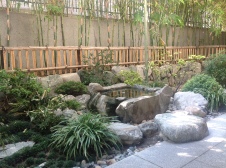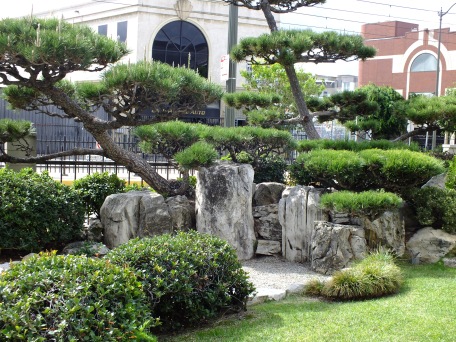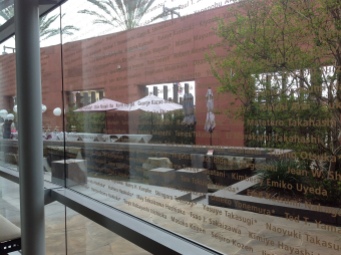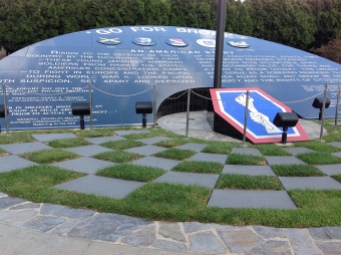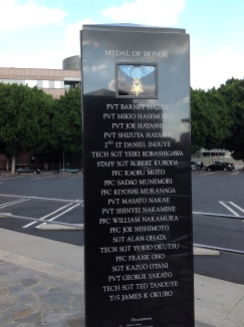
Descanso Gardens in Flintridge near Los Angeles will host the North American Japanese Garden Association regional conference in January 2017 Photo courtesy of Descanso Gardens
California and Texas will play host to regional conferences of the North American Japanese Garden Association in January and February 2017.
Saturday and Sunday, January 14 and 15, 2017 a regional conference will be held in Southern California at Descanso Gardens in Flintridge.
Marking the 50th anniversary of Descanso Gardens, the conference is designed to “explore the Japanese garden experience in Southern California in a two-day regional event featuring hands-on workshops, an exhibition, lectures on horticulture and history and expert-led tours of five Asian gardens,” said a release from the North American Japanese Garden Association (NAJGA).
“Descanso Gardens, just northeast of downtown Los Angeles, is celebrating the 50th year of its Japanese garden. Descanso is embracing the garden’s evolving form, its identity as a focal point for a multi-cultural community and its role in inspiring new artistic creation. For lovers of camellia, a familiar plant in the Japanese garden, Descanso is home to the largest camellia collection in North America.
“The Japanese garden at the nearby Huntington boasts a history over 100 years as well as a legacy of evolution and renovation seen in its restored Japanese House and a new tea garden. Two other large gardens in the area — the SuiHoen (Garden of Water and Fragrance) in Van Nuys and the Storrier-Stearns Japanese Garden in Pasadena — illustrate how Japanese gardens can demonstrate the sustainable use of water in even an arid climate. All of these gardens feature exceptional garden architecture that makes use of Southern California’s year-round warmth and indoor-outdoor lifestyle.”
For further information and to register, contact NAJGA at http://www.najga.org/Southern-California-2017
In February — 10 through 12, the Japanese Garden at Fort Worth Botanical Garden and the Meiners garden in Grand Prairie will host a NAJGA regional conference.
The following text is quoted from the NAJGA web site offering registration for Texas events.
“The diverse topography of the state of Texas contains elements associated with both the southern and southwestern parts of the United States, from the rolling prairies, grasslands, forests and coastlines in the east to the deserts of the southwest. As big as the land itself is the canvas of myriad possibilities for expressing the landscape-inspired artistry of a Japanese garden in the Lone Star State.
“The Japanese garden at the Fort Worth Botanic Garden and a private garden located in the city of Grand Prairie illustrate the range of traditional and contemporary landscape artistry worked into that sprawling canvas. The 7.5-acre garden in Fort Worth incorporates both a traditional stroll garden with a water feature and two interpretations of the dry landscape style. The Meiners Garden in Grand Prairie is an example of the adaptability of the Japanese garden aesthetic, with its emphasis on responding to the environment in which the garden exists. The tea garden and the hill-and-pond garden are seamlessly integrated with the residence in traditional Japanese manner. A larger pond garden in the premises is a parallel ongoing project.
“These gardens illustrate how Japanese gardens are always a work in progress. On February 10, 11 and 12, the North American Japanese Garden Association (NAJGA) offers a rare opportunity for participants to both shape the future of these gardens and appreciate them through hands-on sessions. The sessions include the repair and maintenance of man-made and horticultural elements, the creation of a new water feature, and a day of learning with a focus on the tea garden tradition.
“This regional event is highly recommended for landscape and horticulture professionals in the south and southwestern US with an interest in Japanese garden design, construction and maintenance. For garden owners and other enthusiasts, the event provides an instructive inside view of two gardens in evolution that can relate to their own creation / maintenance concerns and garden study.”
Activities included in the workshops include: bamboo fence repair, shaping of wave-form foliage, preparing trees for transplant, head water and stream construction, tours and tea ceremony.
This event is eligible for CEUs (continuing education units) with professional organizations. See the NAJGA web site and registration form for more information.






